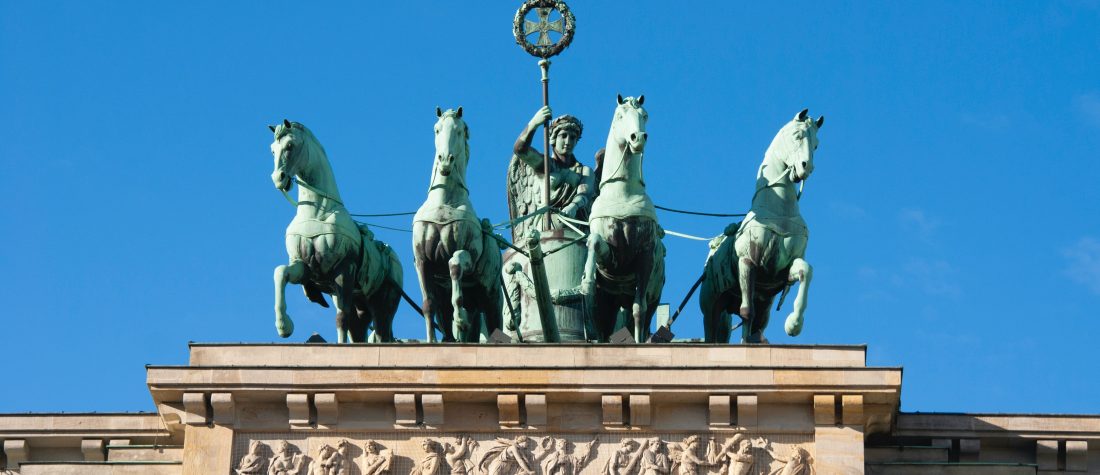The migrant crisis, a pandemic and the climate emergency: the need for internationally coordinated responses to crises has never been more apparent. And these problems are only the most pressing facing the European Union. Deeper and longer-term challenges lurk under the surface.
Recognition
Change is never easy. Especially not in a union of countries where the threat is not obvious to everyone. But the EU’s fundamental values (the rule of law, freedom of speech) are under attack. Indirectly, the pillars on which post-war Europe was built are slowly being undermined. Since 2010, increasingly powerful far-right populists have been distorting the meaning of European values. So have the far left, promoting identity politics and class struggle. The result is an increasingly extreme political discourse. The main beneficiaries of which are, undoubtedly, the populist forces.
What is democracy?
That’s why it’s so crucial to concede that democracy is normally not threatened by disputes, however much one may despise another’s views. The truth is that most politicians and public figures may disagree, but they generally believe in the boundaries of democracy. Public debates and the clash of different views is democracy in action. This is where anxious liberals can often get confused. The rise of a corrupt or braggadocious politician is no reason to worry about democracy in general, because democracy and the rule of law have the necessary remedies for the situation: an independent judiciary, a professional state administration and a public political discourse.
So, when do you need to worry about democracy? Well, when the voices all sound the same. When a regime is shutting down disputes rather than engaging in them. Citizens of such regimes never see corrupt dealings revealed or political scandals breaking out, because law enforcement and state administration are under direct political control. Journalists are censored, the media is controlled. The question becomes not whether the odd unsavoury candidate can run in an election just to fail eventually, but whether anyone outside the government’s circle can enter the race at all, and if so, under what terms.
That’s where the real difference lies. And that’s the arrangement the Viktor Orbán-led Hungarian government keeps trying to hide under, having erected a gauze of right-wing identity politics. Unfortunately, it often succeeds, because certain opinion-shapers on the other side of the continent are eager to engage in fake ideological battles with the Hungarian leadership, thus constantly supplying ammunition that leaves everyone further away from the real issues.
Our common goals
If the European Union truly wants to become united in diversity, it must focus its efforts elsewhere. Perhaps European countries and nations will always see certain matters differently due to historical and cultural differences. But those differences can’t prevent us from setting common goals or reforms for all of us.
Reforms like majority instead of unanimity in decision-making, or goals like the reinforcement of democratic legitimacy. But for that to work, we need to reinstate democracy in each member state. How? Firstly, immediate sanctioning mechanisms must be established. The values held by the EU are not under any doubt; neither is the fact that all member states must adhere to them. But the EU has been procrastinating, constantly shying away from any action in defence of them. If a clear breach of democratic norms occurs, or evidence of systemic corruption emerges, the EU should be ready to implement measures isolating the elites of that regime, and restricting its access to financial resources, i.e. EU funds.
Secondly, the huge economic and social gap between the two sides of Europe must be reduced. The European community is split by a rift in living standards between those on the periphery and those in the core states. The result is a perpetual “brain drain” in the edges of Europe, hampering or even reversing economic development due to demographic decline and a shortage of skilled labour. Concerted measures such as a targeted cohesion policy channelling funds into high value-added production, support for SMEs, zero tolerance for corruption and investment in education are urgently needed.
A united voice
If the European Union can’t make decisions or speak in a united voice, it will fail. At present, most of the ongoing crises inside and outside of our borders are caused by indecision and procrastination. Predicated on crisis management, the EU lacks long-term vision.
2022 will bring more challenges. The question is what will the EU do about them? Are we to continue drifting aimlessly, conducting pseudo-debates? Or are we going to take a huge step, to trust in a European community with real commitments and a united voice?


